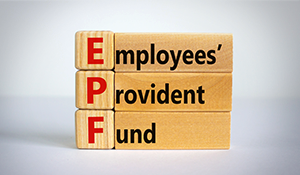Anything can be as simple as ABC, especially when a seasoned subject matter expert guides you. EPF is no exception.
We invited Narayana (Retired Additional Central PF Commissioner, EPFO) to answer a whole lot of queries raised by the members of the HR fraternity. The session (Parichay‒Ask the Expert) was truly unmissable! If you missed it, no worries. We have made it easier by capturing most of the questions and answers below.
What are some of the critically essential records organisations usually fail to maintain?
Unfortunately, the act or scheme does not mention the documents to be maintained under EPF. Since there are no provisions, we refer to the records being maintained under other laws.
What should be done if a new employee comes with multiple UANs?
The employee has to ensure that one UAN is closed. Usually, the latest UAN is retained, and the duplicate is canceled. Anyone can approach the department for the process to merge them.
Can an EPF settlement be made without a nomination?
As per the EPF Act, nomination is not a compulsory requirement. A person cannot be denied his claim if a nomination has not been made. But it’s advisable to nominate someone to make settlements easier and also avoid conflicts.
What is the action to be taken if an employer has not deposited an employee’s deducted PF amount?
The employee has to go to the local police station and file a complaint. Alternatively, the person can complain to the Provident Fund authorities, who will file an FIR against the employer.
How can an employee get his PF-related queries addressed if his company has shut down?
As the custodian of the UAN, the employee can get all queries answered directly without the employer’s intervention. The money deducted by the employer is credited to the individual’s PF account on a monthly basis, and an SMS alert is also sent.
Why is the EPF joint declaration form in both physical and online formats?
There are certain security reasons for this. The department is liberal for up to three years, so they’ll accept major changes (like DOB) online. Any variation beyond three years requires physical documentation since it’s not possible to perform certain types of checks online. Also, the employer is given the responsibility to verify and certify the authenticity of the information.
What are the EPS benefits of an employee who completes 10 years of continuous service?
The employee who has contributed to the EPS account for 10 years is eligible for a pension, even if the service is not continuous. But the individual should not have withdrawn the money from the account.
Should an employer deduct PF on a statutory bonus?
No. A statutory bonus (paid annually) is not considered for Provident Fund, and the employer need not make any deduction.
If an employer delays the remittance of PF contribution, will it affect the interest paid to the employee?
The employee will receive the interest till the date of settlement. If the person is 58 years, he/she will receive interest only for 36 months for a non-contributing account.
Want to hear it directly from the speaker?
Watch the recording of the entire webinar.









